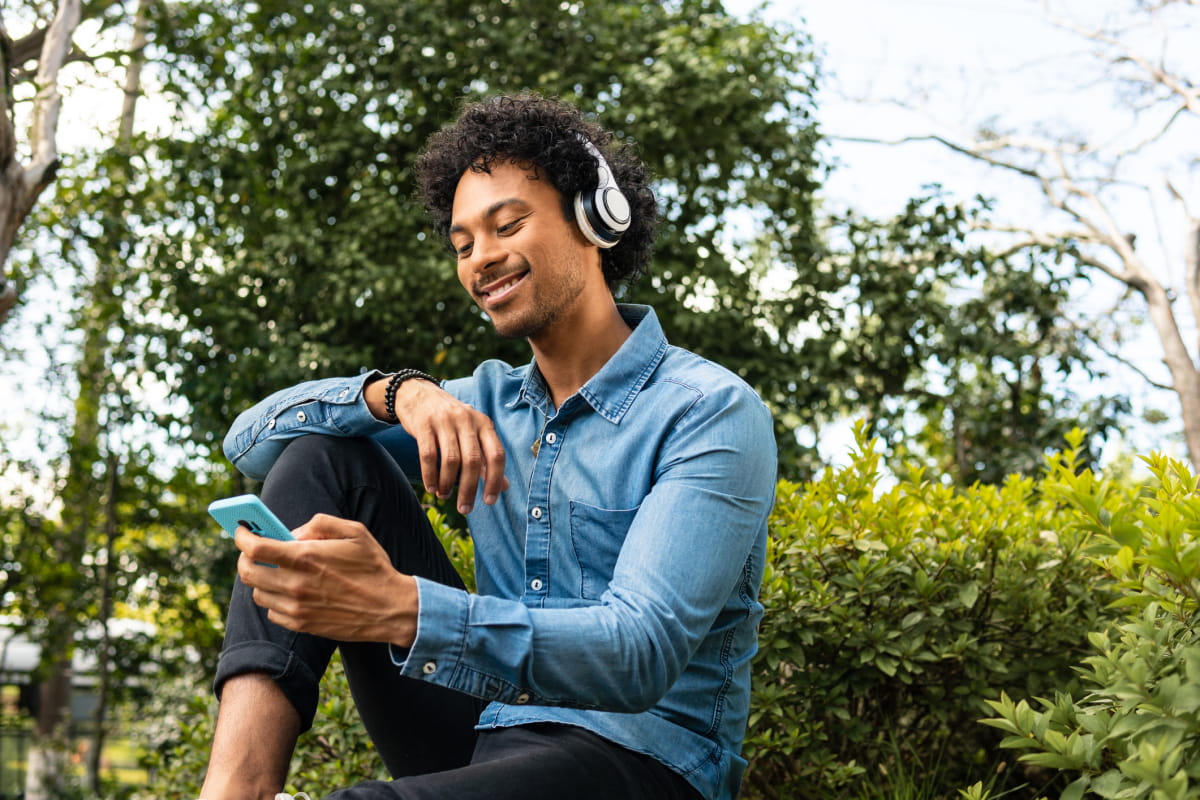The COVID-19 pandemic is another reminder that good sleep is the foundation of good health. According to the National Heart, Lung, and Blood Institute, 50 to 70 million U.S. adults experience some type of sleep loss or sleep disorder, insomnia being the most common. In fact, the Centers for Disease Control and Prevention (CDC) in the United States has declared insufficient sleep a “public health problem.” This was BEFORE the pandemic.
As more of us are sheltering in place, it can be so tempting to fall into the trap of worry, anxiety, overeating, over-caffeinating, over-drinking, self-medicating and new habits that can set us up for a poor nights’ sleep (and we all have friends who are experiencing the COVID 15 when it comes to weight gain). As an alternative, you can take the time to let go, focus on what’s in your control, and learn new habits to sleep better.
As it turns out, good sleep habits can add years to your life. Conversely, sleep deprivation has been linked to diabetes, decreased immunity obesity, and heart disease, including hypertension and heart failure. With COVID-19 affecting people with underlying conditions disproportionately compared to the rest of the population, it’s increasingly important to avoid the direct consequences of sleep deprivation.
The Exhaustion Epidemic
The General Social Survey says young adults are now twice as likely to experience constant exhaustion than they were 20 years ago. Millennials are also considered the most stressed out generation, attributing it to a lack of sleep and more anxiety than any generation needs.
Many factors contribute to the causes of this widespread exhaustion, including the omnipresence of technology (and especially using our mobile devices in bed), money worries stemming from an uncertain economy and a “hustle culture” that all of a sudden feels so last year. The World Health Organization’s classification of burnout list three components that can be aggravated during the pandemic:
- The feeling of energy depletion or exhaustion
- Increased mental distance from one’s job or feelings of negativism related to one’s job
- Reduced professional efficacy
The WHO’s classification makes a strong case for professionals to take this issue seriously. All three components make it clear why companies should invest in addressing this problem directly. While personal exhaustion is clearly the leading and most recognized symptom of sleep issues, the other two suggest that the businesses are taking as big of a hit from burnout as their employees are.
The Effects of Sleep Deprivation on Employees
Sleep is essential not only for maintaining a productive effort at work but for an employee’s overall wellbeing. Effects from the lack of sleep seep into every area of one’s life, from misunderstanding social cues to the inability to focus. The workplace requires professionals to pull from a variety of skills and cognitive functions, so you may want to reschedule that important client meeting if you’re showing up after just a few hours of sleep. It’s time businesses wake up to the dangers and consequences of widespread exhaustion and burnout.
Memory
Memory performance is critical for organizational success, like remembering to show up to meetings on time to recalling crucial sales figures. On a personal level, it’s a fundamental part of what makes us who we are.
Decision Making
Sleep-deprived people are easily side-tracked by irrelevant facts, and lose track of what progress has been made. Brain imaging studies have shown that sleep deprivation was associated with increased activation of brain regions related to risky decision making, which means gambling on decisions where the losses outweigh the rewards.
Creativity
Tired minds generate fewer creative ideas and more lackluster ideas. If an employee’s creative activity starts dropping in both quantity and quality, they might want to consider the age-old advice to “sleep on it.”
Health
Negative changes in sleep patterns can lead to “high blood pressure, appetite regulation imbalances, and susceptibility to infection.” It might be time for employees to lean into their benefit programs to get the most out of their work – and their health.
Mood
Skimping on sleep worsens one’s mood. In research by Professor Culpin, the most frequently reported effect of lack of sleep was “feeling irritable,” followed by “feeling more stressed,” and wanting to be “left alone.” If your workforce is exhibiting more signs of hostility, it may be due to lack of sleep.
Social Awareness
Sleep-deprived individuals have more difficulty reading the facial expressions of others, according to a 2014 study by Experimental Brain Research. Misunderstandings, especially in a relationship-driven industry, have the potential to halt business deals and damage customer relationships.
Errors and Accuracy
A tired brain is prone to a drop in quality of output, making mistakes a common occurrence. Researchers at Harvard Medical School found that insomnia is responsible for 274,000 workplace accidents each year. Whether the error is in performing a task that leads to harm or not performing a required task, either way, it will cause major disruption to the workplace. Yes, we’re talking about being “asleep at the wheel.”
Top 10 Nighttime Routines for Better Sleep
Using a non-pharmacological-first team-based approach is imperative to optimizing your sleep hygiene. Catching more “Zzz’s” can be more than just a distant dream. Want to help your employees sleep better and turn it into their reality? Here are Dr. Graham’s top 10 nighttime routines to share with your employees:
- Create a routine: set a regular time to go to bed and get up, and stick to it! Stay on schedule even on weekends.
- Associate your bed with sleep and sex only—your bed is not for catching up on work. (Yes, we know working from home makes this hard. Trust us.)
- Clear your mind of intrusive thoughts (the monkey mind) by using meditation, guided imagery, and deep breathing techniques.
- Don’t lie awake! After 20 minutes of restlessness, get out of bed and do something relaxing until you start to feel sleepy and then go back to bed.
- Put your phone down: Blue light reduces melatonin production, so limit the use of devices with LED backlit screens or dim them. Avoid looking at bright screens 2-3 hours before bedtime.
- Keep it cool! Maintain a temperature between 65-68 degrees in your bedroom.
- Go nuts: Walnuts and almonds contain tryptophan and magnesium, so they are the “dream” sleep-inducing snack.
- Make a “dreamy” essential oil synergy and spray it in your bedroom and on your sheets. Some favorites for sleep are lavender, roman chamomile, and vetiver.
- Sip on some relaxing herbal teas, like chamomile and hibiscus.
- Count your blessings instead of sheep. Grateful thoughts can help you get a great night’s sleep. Try gratitude journaling prior to bed, and you may rest easier.
Try these, and you might get the sleep you’ve always dreamed of! Lack of sleep and its powerful impact on your workforce is something many employers should be taking into consideration when it comes to total employee wellbeing. Want to learn more about sleep training? Head over to our resources page to download the eBook, “Our Targeted Wellbeing Program for Improving Sleep.”
Until next time, good night and good luck!











